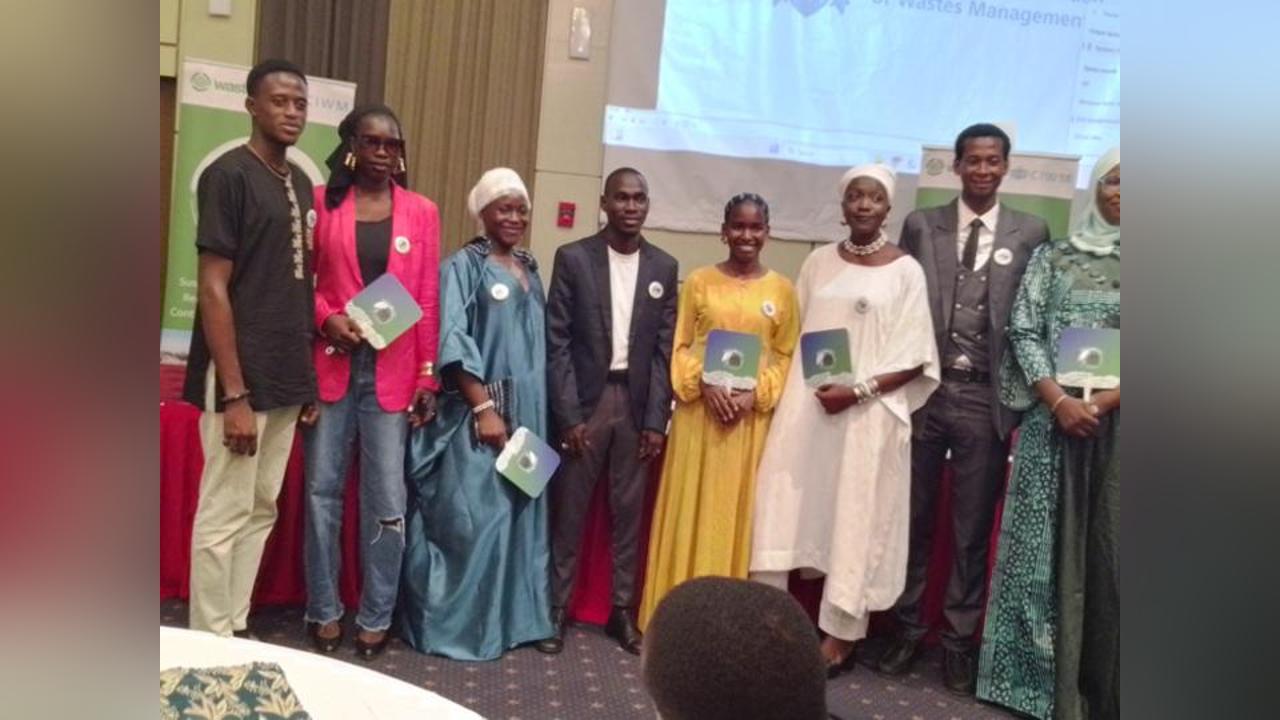Africa-Press – Gambia. In a bold move to accelerate The Gambia’s transition toward sustainable waste management, WasteAid, a global environmental organisation, recently launched its Upcycling Network Initiative under the Dennakuwo Circular Economy Network at a high-level convergence held at Kairaba Beach Hotel.
The event brought together an impressive array of participants, including government officials, environmental leaders, private sector actors, and civil society representatives, all united under a common goal of promoting circular economy principles as a solution to the country’s mounting waste challenges.
The convergence served not only as a platform to highlight the milestones achieved by WasteAid and its partners over the past three years but also as a springboard for renewed commitment to innovative waste management practices.
The Dennakuwo Circular Economy Network, launched in 2022, is a flagship initiative of WasteAid and is funded by the UK Chartered Institution of Waste Management (CIWM). Since its inception, the project has worked to embed circular economy models across local communities, particularly by supporting Upcycling ventures that transform waste into valuable resources.
The event also featured a showcase of green innovations, spotlighting local entrepreneurs who have successfully transformed plastic waste, metal scraps, and discarded fabrics into reusable products—from eco-bricks and compost to fashion accessories and construction materials. Attendees were given a tour of exhibits that highlighted how Upcycling can contribute to environmental conservation, economic resilience, and community empowerment.
Speaking at the launching, Lamin Sanyang, WasteAid’s Country Coordinator, emphasised the importance of cross-sector collaboration in waste management.
“The Upcycling network is not just about managing waste—it’s about creating a system where waste becomes a resource,” Sanyang said.
He added that WasteAid is working closely with local partners, from grassroots communities to private sector champions, to ensure sustainability is not just a concept but a reality.
“The launching of the secretariat will serve as the coordinating body ensuring that the momentum west coast has built continues to grow reaching more people, more communities and more sectors of society.”
Ndey Awa Ceesay, Dennakuwo secretariat president, called on stakeholders and the government to integrate circular economy practices, international policies and climate change agents to ensure a more effective response to climate issues.
She urged the communities to take ownership of the local measures and solutions.
“Let us build a Gambia where no waste goes to waste, where no woman is left behind, where trash is turned into cash, where wastelands are turned into factories and where Moringa is not just a tree, but a symbol of our resilience,” he appealed.
The convergence concluded with strategic networking sessions where stakeholders shared ideas, built partnerships, and discussed policy recommendations to strengthen regulatory frameworks for waste management and resource efficiency.
For More News And Analysis About Gambia Follow Africa-Press






